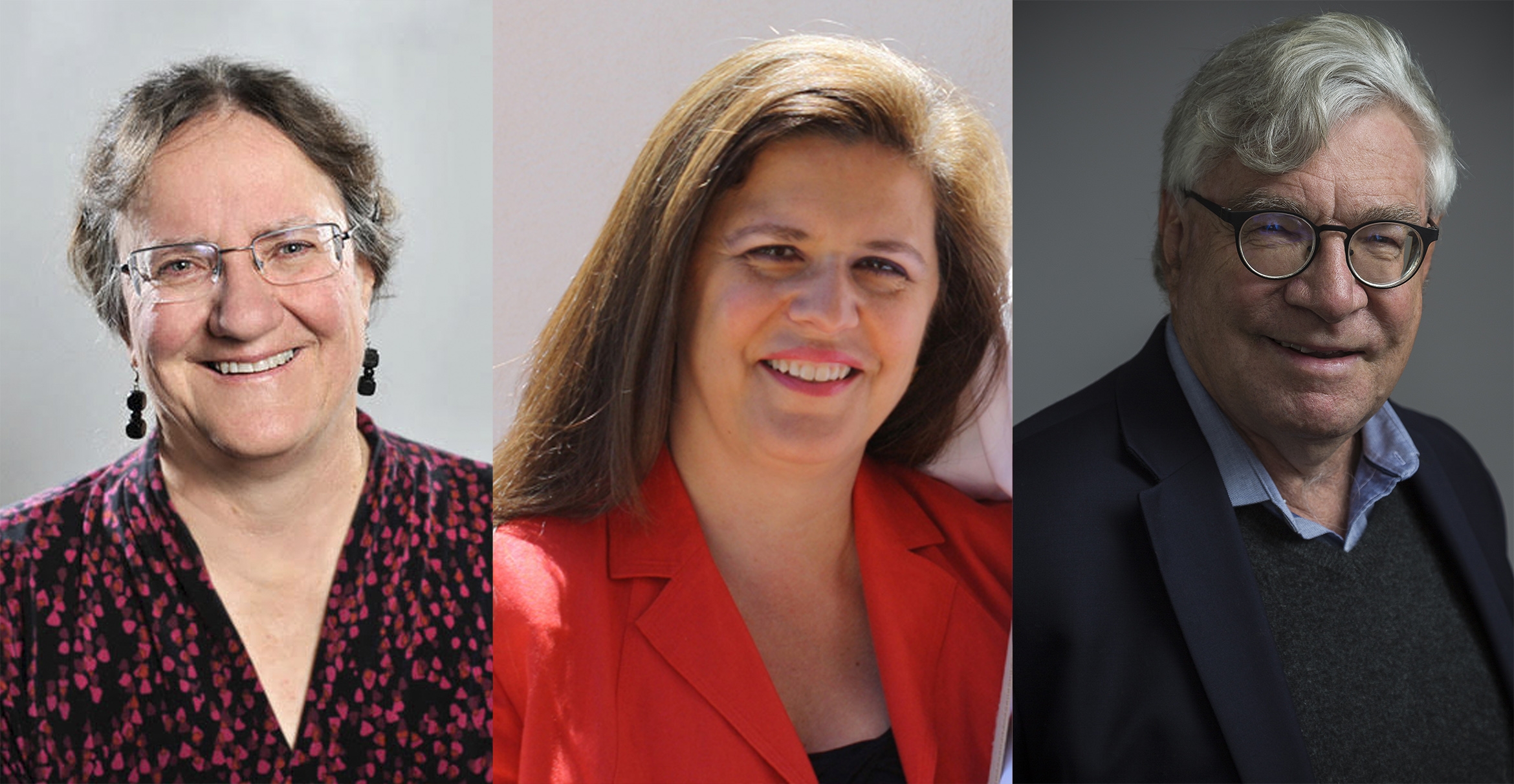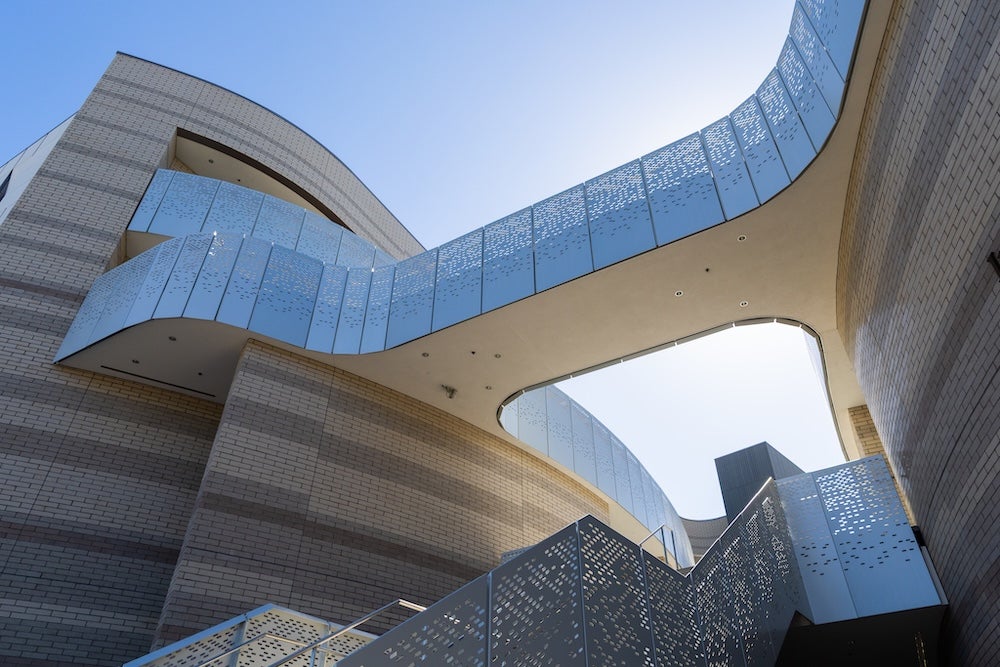
Joining one of the world’s premier honorary societies, three professors are named to the American Academy of Arts & Sciences
Professor Leda Cosmides from the Department of Psychological & Brain Sciences; Tanya Atwater, professor emerita in the Department of Earth Science; and Nelson Lichtenstein, research professor in the Department of History have been elected to the American Academy of Arts & Sciences. They join 263 “outstanding individuals” as the newest members of the 243-year old American institution. Their selection brings to 48 the number of faculty members who have been named fellows of the academy.
“We at UC Santa Barbara are continually reminded of the excellence and impact of our faculty colleagues, and today we are thrilled to congratulate Professors Atwater, Cosmides and Lichtenstein on their election to the prestigious American Academy of Arts & Sciences,” said UCSB Chancellor Henry T. Yang. “They have joined an elite membership at one of the world’s premier honor societies for the arts and sciences, and we could not be more proud. This honor not only recognizes their remarkable pioneering contributions and leadership in their fields, but also highlights the great depth and breadth of outstanding research and scholarship that takes place across our campus every day.”
Geophysicist and marine geologist Tanya Atwater helped shape the modern understanding of the ground beneath our feet by helping to usher in the “Tectonic Revolution” in the 1960s. Her early work linked patterns of magnetism on the ocean floor to a new theory of seafloor spreading, quantitatively giving weight to a growing body of work that supported the idea that the surface of the Earth moves. Atwater’s research would go on to describe the various processes of a system of plates that comprised the Earth’s surface — “tectonic” plates whose movements explain a variety of phenomena including earthquakes and volcanoes, and the formations of mountains and basins. She is best known for her work on the plate tectonic history of western North America, in particular the San Andreas fault system, a roughly 1,200-mile zone that extends almost the entire length of California and Baja California, Mexico.
Atwater was also a rare female scientist in a heavily male-dominated field, conducting research at a time when not a lot of women did fieldwork. Known for her enthusiasm for teaching, she educated a wide range of students even after she retired in 2007, with various lectures and field trips. Through a series of multimedia pieces including animations, videos, illustrations and infographics, she continues to educate curious minds about our fascinating planet.
These days, the idea that human nature — our innate psychological traits and the behaviors they produce — is in large part the product of hundreds of thousands of years of our ancestors solving problems and interacting with their environments and each other, is not so unconventional. But in 1992 when psychologist Leda Cosmides edited and published “The Adapted Mind: Evolutionary Psychology and the Generation of Culture” (Oxford University Press), along with anthropologists John Tooby (UCSB) and Jerome H. Barkow (Dalhousie University), the concept was revolutionary, and the book became the foundational text for the emerging field of evolutionary psychology.
Using this relatively new approach toward understanding the mind, Cosmides’ work weaves together cognitive science, human evolution, hunter-gatherer studies, neuroscience and evolutionary biology. The result? Insights into the roles of various human emotions including anger, shame and pride as well as a deeper understanding of reasoning mechanisms and motivations that underlie behaviors such as cooperation, coalitional “us versus them” psychology, reciprocity, the discernment of cheating, kin detection, threat interpretation and friendship. Currently a Distinguished Professor at UCSB, Cosmides, along with Tooby, co-founded and co-direct the UCSB Center for Evolutionary Psychology (CEP), whose researchers study a wide range of human actions and interactions including mate choice, violence and the functional design of love, jealousy and disgust.
“I am extremely proud of our distinguished scholars who have been elected to the prestigious American Academy of Arts & Sciences,” said Pierre Wiltzius, Susan and Bruce Worster Dean of Science. “This honor recognizes their exceptional contributions to research and education that advance our collective scientific knowledge. I congratulate them on this meaningful achievement.”
In his work, renowned and influential labor historian, prolific author and Research Professor Nelson Lichtenstein takes a broad and deep look at the lives, struggles and achievements of everyday workers — the backbone of the U.S. economy — in the context of the shifting sands of capitalism. Often he discusses workers’ rights, at other times corporate strategy. He explores how movements rise and fall, succeed and fail, and what laws and policies were enacted in their wake. In doing so, Lichtenstein has been attentive to the history of social though and political ideology, following the long, twisty thread to today’s political, social and economic outcomes. This nuanced perspective is present in his most recent book, “A Fabulous Failure: The Clinton Presidency and the Transformation of American Capitalism” (Princeton, 2023).
“Throughout my entire career,” said Lichtenstein, “I have tried to show how an understanding of our history can prove a powerful tool to those seeking to construct a more democratic and egalitarian future.”
Lichtenstein has made his voice heard not only in a score of scholarly books, but in opinion pieces, commentaries and interviews with reporters seeking to understand labor, politics and supply chain issues. For nearly two decades he directed the UCSB Center for the Study of Work, Labor and Democracy. In recent months he has participated in founding an even larger and more engaged venture, the UCSB Labor and Community Center.
Founded in 1780, the American Academy of Arts & Sciences is both an honorary society that recognizes and celebrates the excellence of its members and an independent research center convening leaders from across disciplines, professions and perspectives to address significant challenges.
Shelly Leachman
Editorial Director
(805) 893-2191
sleachman@ucsb.edu



